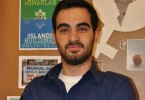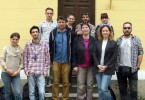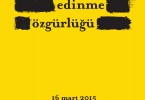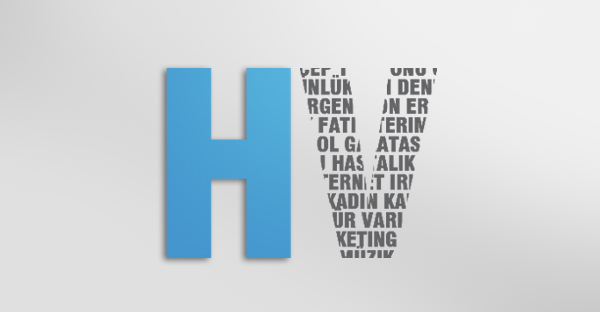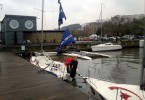Niyazi Dalyanci
The U.S. President Barack Obama’s address to the Turkish National Assembly included all the expected topics ranging from Iran, Iraq, Afghanistan to the sensitive issues of minority rights in Turkey and to the sensitive issue of the Armenian question. But he tried to sweeten his speech when mentioning topics that might annoy his hosts by bringing up “dark” examples from his own country’s history, in other words, building his address on a “nobody is perfect” message.
Talking about minority rights, he put himself forward saying, “I say this as the President of a country that not very long ago made it hard for somebody who looks like me to vote, much less be President of the United States. But it is precisely that capacity to change that enriches our countries. Every challenge that we face is more easily met if we tend to our own democratic foundation. This work is never over. That’s why, in the United States, we recently ordered the prison at Guantanamo Bay closed. That’s why we prohibited — without exception or equivocation — the use of torture. All of us have to change. And sometimes change is hard.”
He asked the Turkish government to reopen the Greek Orthodox seminary on the Chalki Island which was shut down in 1972 through a law that closed all private institutions of higher education.
“Freedom of religion and expression lead to a strong and vibrant civil society that only strengthens the state, which is why steps like reopening Chalki Seminary will send such an important signal inside Turkey and beyond. An enduring commitment to the rule of law is the only way to achieve the security that comes from justice for all people. Robust minority rights let societies benefit from the full measure of contributions from all citizens,” said President Obama.
Then he dwelt on the more controversial issue of whether the Armenians in the Ottoman Empire were subjected to a genocide or massacre in 1915. Again he sweet coated the issue with how the white Americans treated the Red Indians and African Americans in the past.
“Another issue that confronts all democracies as they move to the future is how we deal with the past. The United States is still working through some of our own darker periods in our history. Facing the Washington Monument that I spoke of is a memorial of Abraham Lincoln, the man who freed those who were enslaved even after Washington led our Revolution. Our country still struggles with the legacies of slavery and segregation, the past treatment of Native Americans.”
“Human endeavor is by its nature imperfect. History is often tragic, but unresolved, it can be a heavy weight. Each country must work through its past. And reckoning with the past can help us seize a better future. I know there’s strong views in this chamber about the terrible events of 1915. And while there’s been a good deal of commentary about my views, it’s really about how the Turkish and Armenian people deal with the past. And the best way forward for the Turkish and Armenian people is a process that works through the past in a way that is honest, open and constructive.”
He added that it was not his job to solve the question but it was up to the Turks and Armenians to settle it.
That was also a message to the U.S. Congress according to Turkish commentators. They interpreted the U.S. President’s remarks that the Congress should keep out of the Armenian question and let the two peoples reach an agreement between them.
“We’ve already seen historic and courageous steps taken by Turkish and Armenian leaders. These contacts hold out the promise of a new day. An open border would return the Turkish and Armenian people to a peaceful and prosperous coexistence that would serve both of your nations. So I want you to know that the United States strongly supports the full normalization of relations between Turkey and Armenia. It is a cause worth working towards,” said Obama.
Obama also responded to French President Nicolas Sarkozy who had said earlier in the week that it was up to the European Union to decide whether to accept Turkey as a member.
“The United States strongly supports Turkey’s bid to become a member of the European Union. We speak not as members of the EU, but as close friends of both Turkey and Europe. Turkey has been a resolute ally and a responsible partner in transatlantic and European institutions,” he said.
The war in Iraq should now be ended “responsibly,” Obama said and the Iraqi authorities should take the question of security in their own hands. The U.S. President reiterated his administration’s decision to pull back all American combat troops from Iraq by the end of next August. He also underlined that Iraq should not be a safe haven for terrorists belonging to Al Qaida and PKK (Workers Party of Kurdistan).
“Make no mistake, though: Iraq, Turkey, and the United States face a common threat from terrorism. That includes the Al Qaida terrorists who have sought to drive Iraqis apart and destroy their country. That includes the PKK. There is no excuse for terror against any nation. As President, and as a NATO ally, I pledge that you will have our support against the terrorist activities of the PKK or anyone else,” Obama said.
The U.S. President’s speech also included messages for Iran. He said that Iran should give up its plans to build nuclear weapons.
“Now, I have made it clear to the people and leaders of the Islamic Republic of Iran that the United States seeks engagement based on mutual interest and mutual respect. We want Iran to play its rightful role in the community of nations. Iran is a great civilization. We want them to engage in the economic and political integration that brings prosperity and security. But Iran’s leaders must choose whether they will try to build a weapon or build a better future for their people,” he said.
Obama also implied that he expects Turkey “as a true ally” contribute more to combat terrorism in Afghanistan.
“I appreciate that you’ve offered to help us train and support Afghan security forces, and expand opportunity across the region. Together, we can rise to meet this challenge like we have so many before.”
Obama also pointed out that he is aware that the mutual trust between the U.S. and Turkey has been “under strain” in recent years. “I know that strain is shared in many places where the Muslim faith is practiced. So let me say this as clearly as I can: The United States is not, and will never be, at war with Islam,” he added.
“We will be respectful, even when we do not agree. We will convey our deep appreciation for the Islamic faith, which has done so much over the centuries to shape the world — including in my own country. The United States has been enriched by Muslim Americans. Many other Americans have Muslims in their families or have lived in a Muslim-majority country — I know, because I am one of them.”
Obama’s words that he has Muslims in his family drew a prolonged applause from Turkish lawmakers.
Obama had begun his address to the Turkish parliament with paying homage to Kemal Ataturk, the founder of modern Turkey, drawing a parallel between him and George Washington.
“This morning I had the great privilege of visiting the tomb of your extraordinary founder of your republic. And I was deeply impressed by this beautiful memorial to a man who did so much to shape the course of history. But it is also clear that the greatest monument to Ataturk’s life is not something that can be cast in stone and marble. His greatest legacy is Turkey’s strong, vibrant, secular democracy, and that is the work that this assembly carries on today.”
He ended his speech by a tribute to Turkey in general underlining the importance of the country hosting him.
“I know there are those who like to debate Turkey’s future. They see your country at the crossroads of continents, and touched by the currents of history. They know that this has been a place where civilizations meet, and different peoples come together. They wonder whether you will be pulled in one direction or another.”
“But I believe here is what they don’t understand: Turkey’s greatness lies in your ability to be at the center of things. This is not where East and West divide — this is where they come together. In the beauty of your culture. In the richness of your history. In the strength of your democracy. In your hopes for tomorrow,” he said.


